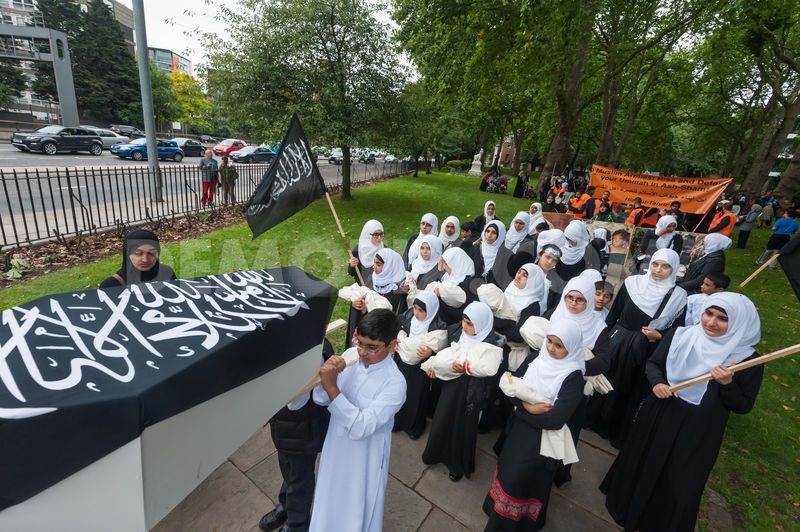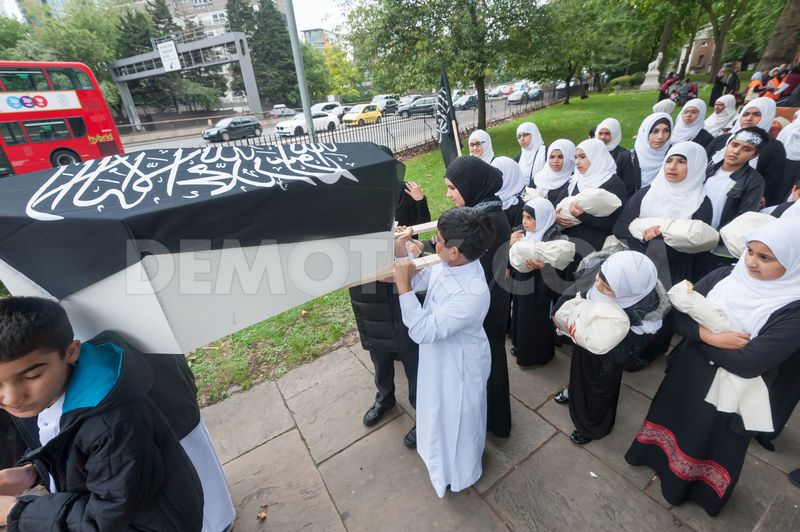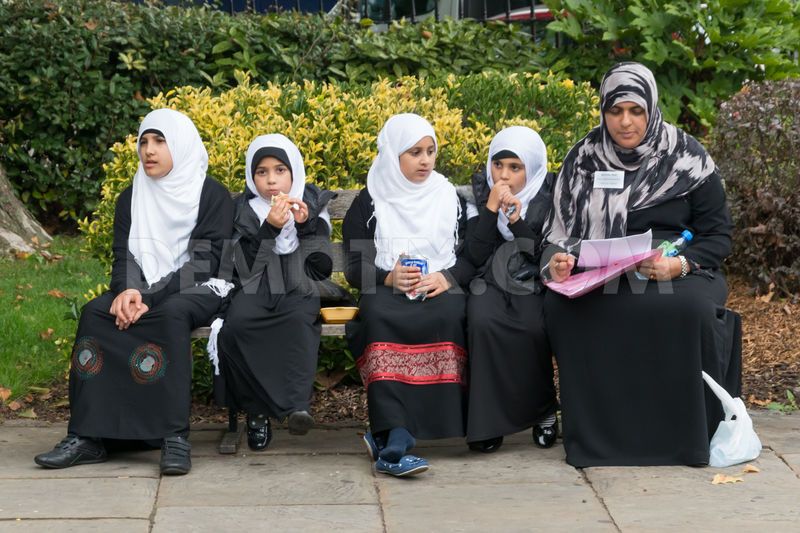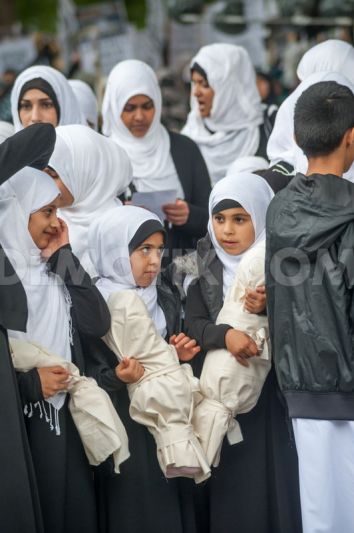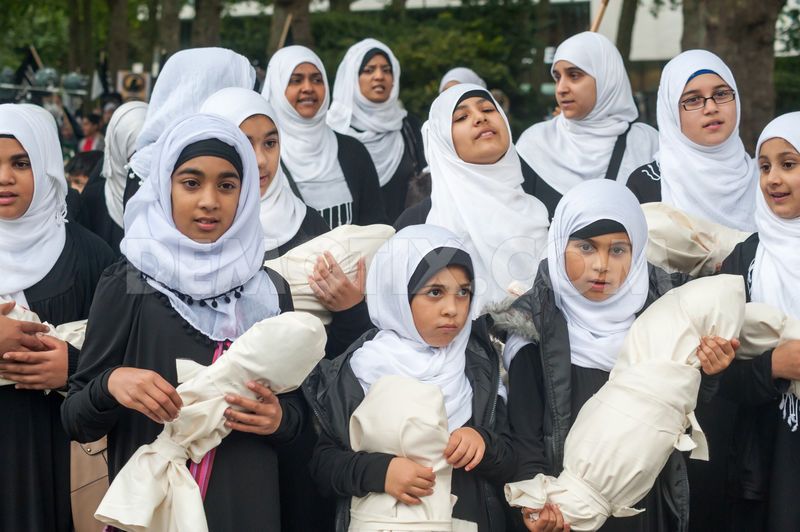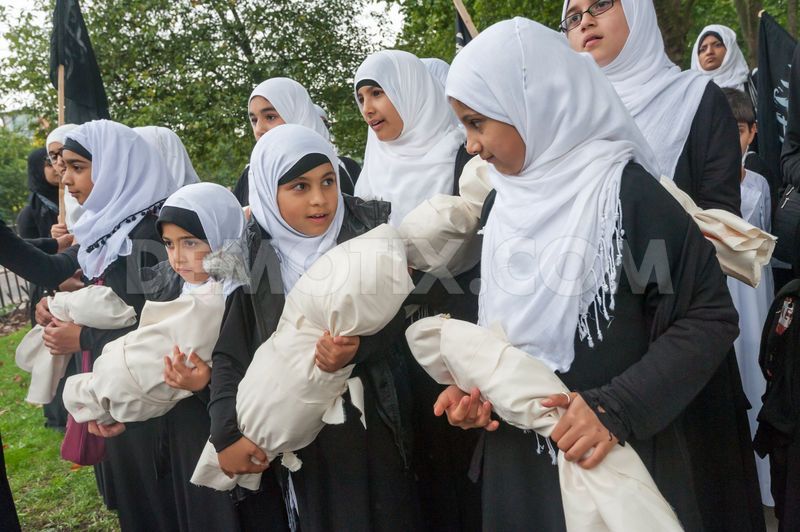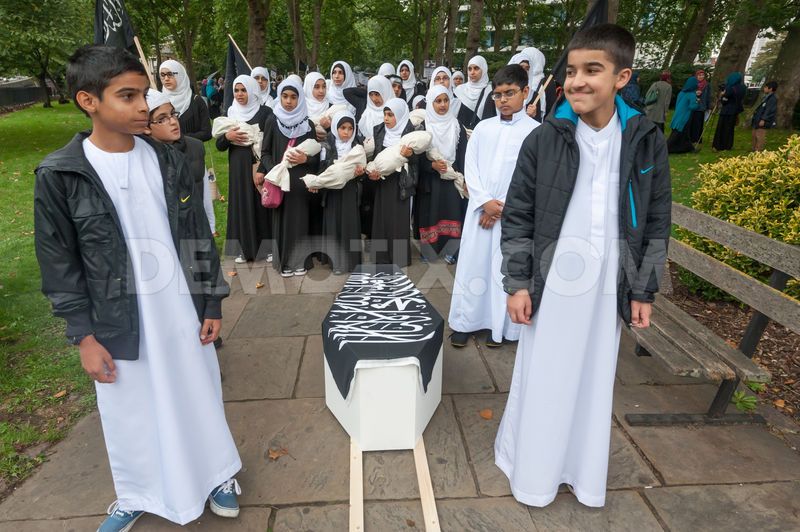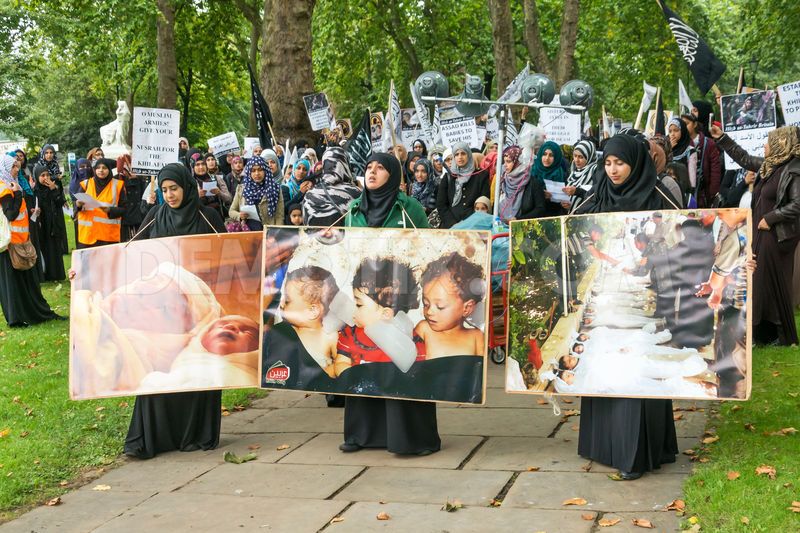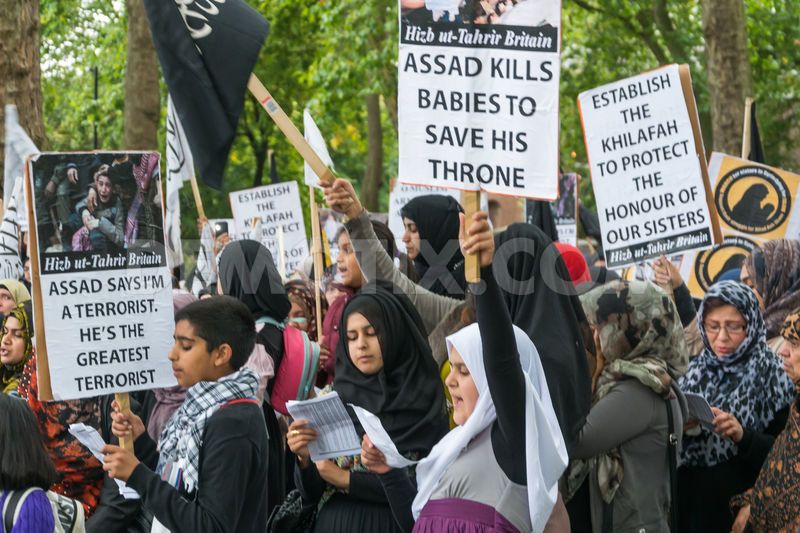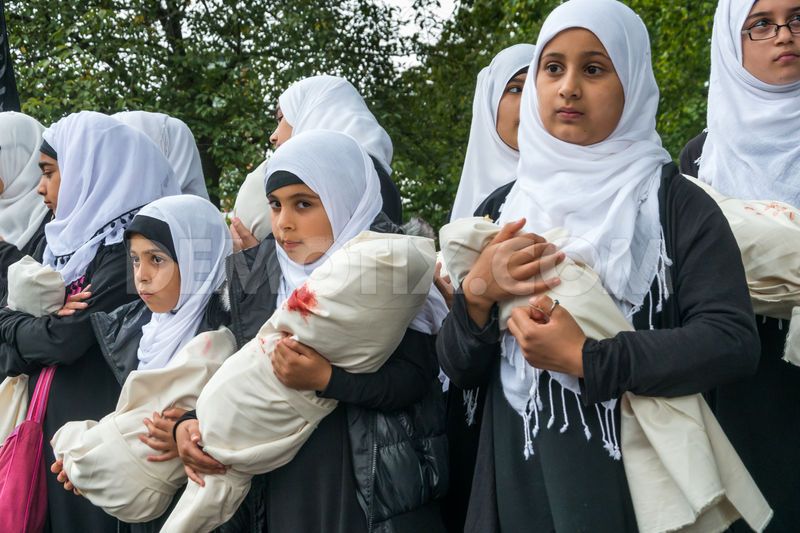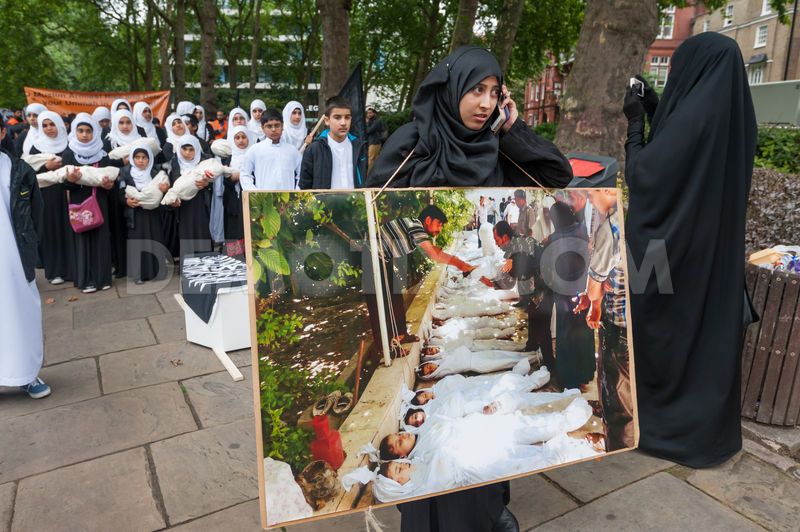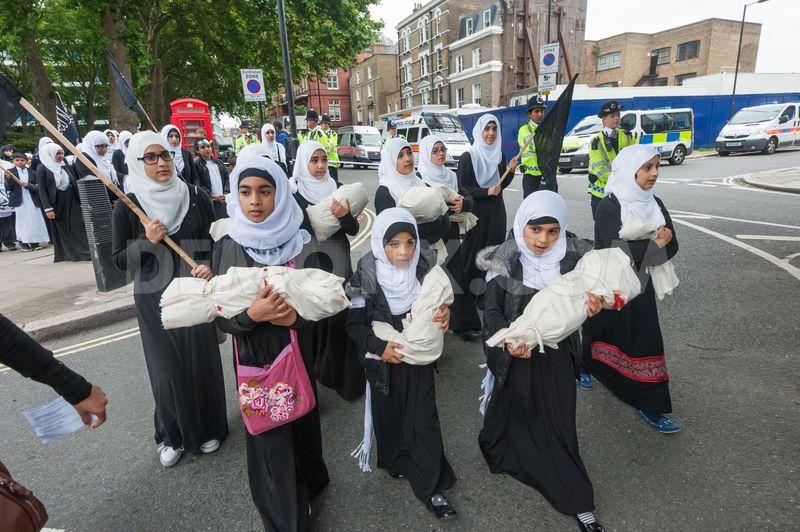Questions:
1. Ghadeer Rooz: Dear Sheikh, nowadays poisonous substances are mixed with alcohol to prevent its intoxication, causing it to become a poisonous substance that is not intoxicating. The question here is whether the "toxic alcohol produced for perfumes" is impure (Najis), corrupting the purity of the clothing?
2. Abu Mahmoud Al-Khalili: Alcohol contained in perfume is of two types, one of it being intoxicating, known under the name of ethyl alcohol. Now the toxic alcohol is what is known under the name of methyl alcohol. Do they both share the same Islamic ruling?
3. Mustapha Abdul ‘Aal: If it is not drunk, oh Sheikh?
4. Iklil Al-Jabal: Does this ruling apply to pharmaceuticals? Especially as many of the hand cleaning substances in all branches of health services are made up of alcohols, "ethanol + isopropanol", it is the same with mouthwashes. We use alcohol in some of the pharmaceutical productions as solvents or preservatives.
5. Manal Bader: Assalamu Alaikum dear Sheikh, Barak Allahu Feek as you kindly mentioned above that alcohol if consumed will result in a drunken state...whereas "SD" or denatured alcohol is used in perfumes, deodorants, lotions and facial creams... in these cases they cannot be consumed internally (due to the change of its chemical state). What is the Hukm on their usage? In another situation, the fuel we use for our cars is also derived from alcohol; does this also fall under the Hukm of Haram? Jazak Allahu kul Khair and may Allah protect you.
Answer:
Wa Alaikum Assalaam wa Rahmatullahi wa Barakatahu
The questions bear similarities, therefore I will brief the answer to them in the following manner:
1. Alcohol has a class called methyl, and I was told that it is not an intoxicant but a deadly poison. Spirit (methanol) is from the class of methyl, taken from sawdust of wood and others, and its drinking causes blindness and can lead to death within days. Based on this, methyl is not Khamr, and the ruling on Khamr is not applied to it in terms of impurity and prohibition, except in terms of the use of methyl as a poison according to the rule of causing damage. Ibn Majah reported from Ubadah Bin As-Samit:
«أَنَّ رَسُولَ اللَّهِ صَلَّى اللهُ عَلَيْهِ وَسَلَّمَ، قَضَى أَنْ لَا ضَرَرَ وَلَا ضِرَارَ»
"The Messenger of Allah (saw) ruled that there is no damage and no causation of harm."
2. Alcohol has another class called ethyl, which is used in fermented or distilled intoxicating drinks, and medical spirit is of this kind. Furthermore ethyl alcohol is used in the industry as a preservative for some materials, as a drying substance against moisture, as a solvent for some alkali and fats (lubricants), as an antifreeze, as a solvent for some drugs, as a solvent of aromatic substances such as cologne and perfumes, and involved in the manufacture of some carpentry materials. The usage is in three sections:
A. The area in which alcohol is used as a solvent only or as an additive to some materials. Such usage does not cause the alcohol to lose its essence or chemical features, rather it remains in its chemical composition and its intoxicating effect. Hence the usage of alcohol within this capacity is absolutely haram, such as the example of cologne. The usage of cologne is not permissible and it remains impure, because it contains impurity (Najasa) in its mixture and intoxicating alcohol is contained in it in its original form. Therefore it is a substance mixed with Khamr, and Khamr is impure, as proven through the Hadith of Al-Khoshani:
أخرج الدارقطني عَنِ الْخُشَنِيِّ، قَالَ: قُلْتُ: يَا رَسُولَ اللَّهِ إِنَّا نُخَالِطُ الْمُشْرِكِينَ وَلَيْسَ لَنَا قُدُورٌ وَلَا آنِيَةٌ غَيْرُ آنِيَتِهِمْ، قَالَ: فَقَالَ: اسْتَغْنُوا عَنْهَا مَا اسْتَطَعْتُمْ فَإِنْ لَمْ تَجِدُوا فَارْحَضُوهَا بِالْمَاءِ فَإِنَّ الْمَاءَ طَهُورُهَا ثُمَّ اطْبُخُوا فِيهَا
Ad-Daraqtani reported from Al-Khoshani, who said: "I said: Oh Messenger of Allah, we interact with the Mushrikeen and we do not have vessels other than their vessels." He said: "Then he (saw) said: ‘Avoid it as much as you can, but if you do not find anything else, then rinse it with water, because water will restore its purity, then cook in it."
Hence the Messenger (saw) said: «فَإِنَّ الْمَاءَ طَهُورُهَا» "Because water restores its purity" meaning this vessel was impure since it was filled with Khamr and it was purified after its rinsing. This proves that Khamr is impure. The question concerned vessels that were filled with Khamr, as in the narration of Al-Khanshi, reported by Abu Dawud from Abi Tha'laba Al-Khanshi, that he asked the Messenger of Allah (saw) and said:
ِنَّا نُجَاوِرُ أَهْلَ الْكِتَابِ وَهُمْ يَطْبُخُونَ فِي قُدُورِهِمُ الْخِنْزِيرَ وَيَشْرَبُونَ فِي آنِيَتِهِمُ الْخَمْرَ، فَقَالَ رَسُولُ اللَّهِ صَلَّى اللهُ عَلَيْهِ وَسَلَّمَ: إِنْ وَجَدْتُمْ غَيْرَهَا فَكُلُوا فِيهَا وَاشْرَبُوا، وَإِنْ لَمْ تَجِدُوا غَيْرَهَا فَارْحَضُوهَا بِالْمَاءِ وَكُلُوا وَاشْرَبُوا
"We adjoin the people of the book while they cook pork in their pots and drink Khamr from their vessels." The Messenger of Allah (saw) said: "If you find others than drink and eat from them. If you do not find others, then rinse them with water and eat and drink."
Both pork and Khamr are impure. Hence the vessel in which they are placed becomes impure. It has to be washed to restore its purity before its usage.
B. In another section, the essence of alcohol is changed, and it loses its chemical feature of intoxication. Alcohol and the other substances are transformed into new substances that have other chemical features than alcohol. It is not poisonous, hence it becomes a new substance that does not share the Hukm of Khamr and it is pure just like any other substance that falls under the rule "the original state in things is permissibility (Ibaha), as long as there is no prohibiting evidence."
C. In another section alcohol is changed in its essence and loses its intoxicating feature. It forms a new substance with the other substances with features different from alcohol. But these new substances are poisonous, thus falling under the ruling of poison: They are pure but their usage for drinking or causing harm with them to oneself or another is Haram.
3. Therefore if ethyl alcohol is mixed with other substances, then the ruling depends on whether it loses its intoxicating feature or not and whether the mixture is poisonous or not. This needs an investigation of the underlying reality by experts and specialists. If it is scientifically or practically proven that the mix is intoxicating, then it falls under the rule of Khamr, indicating that the ethyl alcohol has not lost its intoxicating feature in this mixture. Nevertheless if it is scientifically or practically proven that the mixture is no longer intoxicating nor that it is poisonous, it does not fall under the ruling of Khamr or poison. If it is scientifically proven that this mixture is no longer intoxicating but it remains poisonous, it does not fall under the ruling of Khamr but it falls under the ruling of poison.
Based on the aforementioned:
- Sister Ghadeer Rooz's question which says: "poisonous substances are mixed with alcohol to prevent its intoxication, causing it to become a poisonous substance that is not intoxicating".
The answer is: If it is confirmed by the specialists that the mixture in this state does not intoxicate but is poisonous, then it does not fall under the ruling on Khamr nor is it impure. Rather the ruling on poison is applied to it, such that its usage for drinking or causation of harm through it to others is Haram.
- Question of Brother Abu Mahmoud Al-Khalili which says: "Alcohol contained in perfume is of two types, one of it being intoxicating, known as ethyl alcohol. Now the toxic alcohol is what is known as methyl alcohol. Do they both share the same Islamic ruling?"
The answer is that they do not have the same ruling. The intoxicating substance falls under the ruling on Khamr, while the mixture containing poisonous methyl alcohol falls under the ruling on poison. Perfume, as relayed to me, does not contain methyl but ethyl alcohol. So please have this issue clarified by specialists, because the ruling depends on whether it is intoxicating or poisonous without causing intoxication.
- Question of Brother Mustapha Abdul ‘Aal : "If it is not drunk, oh Sheikh?"
If the result of the mixture is intoxicating, such as cologne; then, it falls under the ruling on Khamr. Khamr is forbidden under ten circumstances, not only if it is drunk. At-Tirmidhi reported from Anas Ibn Malik who said:
لَعَنَ رَسُولُ اللَّهِ صَلَّى اللَّهُ عَلَيْهِ وَسَلَّمَ فِي الخَمْرِ عَشَرَةً: عَاصِرَهَا، وَمُعْتَصِرَهَا، وَشَارِبَهَا، وَحَامِلَهَا، وَالمَحْمُولَةُ إِلَيْهِ، وَسَاقِيَهَا، وَبَائِعَهَا، وَآكِلَ ثَمَنِهَا، وَالمُشْتَرِي لَهَا، وَالمُشْتَرَاةُ لَهُ
"The Messenger of Allah (saw) cursed ten in relation to Khamr: its producer, the one assigned with its production, the one who drinks it, the one who transports it, the one it is transported to, the one who serves it, the one who sells it, the one who eats from its profit, its buyer, and the one for whom it is purchased."
Any of these ten roles is Haram.
- Question of Iklil Al-Jabal: "Does this ruling apply to pharmaceuticals? Especially as many of the hand cleaning substances in all branches of health services are made up of alcohols, "ethanol + isopropanol", it is the same with mouthwashes. We use alcohol in some of the pharmaceutical productions as solvents or preservatives."
The answer is that the usage of alcohol in medicine, as well as the drug containing alcohol, fall under the ruling of permission, though it is undesirable (Makruh), the evidence for it being:
Ibn Majah reported from Tariq Bin Suwaid Al-Khadrami who said:
يَا رَسُولَ اللَّهِ إِنَّ بِأَرْضِنَا أَعْنَابًا نَعْتَصِرُهَا فَنَشْرَبُ مِنْهَا قَالَ «لَا» فَرَاجَعْتُهُ قُلْتُ إِنَّا نَسْتَشْفِي بِهِ لِلْمَرِيضِ قَالَ :إِنَّ ذَلِكَ لَيْسَ بِشِفَاءٍ وَلَكِنَّهُ دَاءٌ
"I said: "Oh Messenger of Allah, on our land we have grapes which we squeeze and then drink from it". He said: "No." Therefore I revised by saying: "We use it to cure the ill." He said: "This is not a form of healing, rather it is a disease."
This is a prohibition of the use of impure or prohibited substances "Khamr" as a cure. But the Messenger of Allah (saw) authorized curing with the impure substance of camel's urine. Al-Bukhari reported from Anas (ra):
«أَنَّ نَاسًا مِنْ عُرَيْنَةَ اجْتَوَوْا الْمَدِينَةَ فَرَخَّصَ لَهُمْ رَسُولُ اللَّهِ صَلَّى اللَّهُ عَلَيْهِ وَسَلَّمَ أَنْ يَأْتُوا إِبِلَ الصَّدَقَةِ فَيَشْرَبُوا مِنْ أَلْبَانِهَا وَأَبْوَالِهَا»
"People from ‘Uraina came to Madina, and the Messenger of Allah (saw) authorized them to approach the camels of charity to drink from their milk and urine."
They came to Madina, i.e. its weather did not suit them so they fell ill. Therefore the Prophet (saw) authorized them to medicate with the camel's urine, which is impure. Also he (saw) authorized medication with Haram, such as the wearing of silk.
At-Tirmidhi and Ahmad reported, at- Tirmidhi's articulation by way of Anas (ra):
أَنَّ عَبْدَ الرَّحْمَنِ بْنَ عَوْفٍ وَالزُّبَيْرَ بْنَ الْعَوَّامِ شَكَيَا الْقَمْلَ إِلَى النَّبِيِّ صلى الله عليه وسلم فِي غَزَاةٍ لَهُمَا، فَرَخَّصَ لَهُمَا فِي قُمُصِ الْحَرِيرِ. قَالَ: وَرَأَيْتُهُ عَلَيْهِمَا
"Abdul Rahman Bin ‘Auf and az-Zubair Bin ‘Awam complained about rash that had befallen them to the Prophet (saw), and he allowed them shirts made of silk. He said: "I saw them in it."
These two Ahadith indicate that the prohibition in the Hadith of Ibn Majah is not absolute, rather that medication through impure and prohibited substances is undesirable (Makruh).
Therefore, the use of a medicine that contains alcohol is permitted, though undesirable (Makruh). It is better not to use alcohol in the pharmaceutical industry, but if used in the pharmaceutical industry then it falls under the Hukm of Makruh. Therefore if the patient takes a medication containing alcohol then it is Makruh. All of this applies only if the mixture containing alcohol is a medication according to the opinion of specialists and not something else.
- Question of Sister Manal Bader: "Assalamu Alaikum dear Sheikh, Barak Allahu Feek as you kindly mentioned above that alcohol if consumed will result in a drunken state...Whereas "SD" or denatured alcohol is used in perfumes, deodorant, lotions and facial creams... in these cases they cannot be consumed internally (due to the change of its chemical state). What is Hukm on their usage? In another situation, the fuel we use for our cars is also derived from alcohol, does this also fall under the Hukm of Haram? Jazak Allahu kul Khair and may Allah protect you."
The answer is that you have mentioned some sort of alcohol-type "SD" or chemically treated alcohol, and you call it "toxic ethanol" and I do not know whether this product falls under ethyl or methyl. The broad outline is that if the result of the produced mixture is not intoxicating but poisonous, then it does not fall under the ruling on Khamr but under the ruling on poison. Therefore it is prohibited if used by a person to cause harm to oneself or another. And the produced substance is pure if no juristic evidence on its impurity exists.
However, if the result of the mixture is intoxicating, then it is under the ruling of Khamr and not only its drinking is forbidden, but all ten circumstances aforementioned.
As for the motor fuel mixed with alcohol, the broad outline is: If its reality is such that if drunk it causes intoxication, then it falls under the ruling on Khamr. If it is not intoxicating but poisonous, then the ruling on poison is applied to it. This has to be decided by the specialists.
Your Brother,
Ata Bin Khalil Abu Al-Rashtah
Link to the answer from the Ameer's Facebook page:






.JPG)

.JPG)




.JPG)
